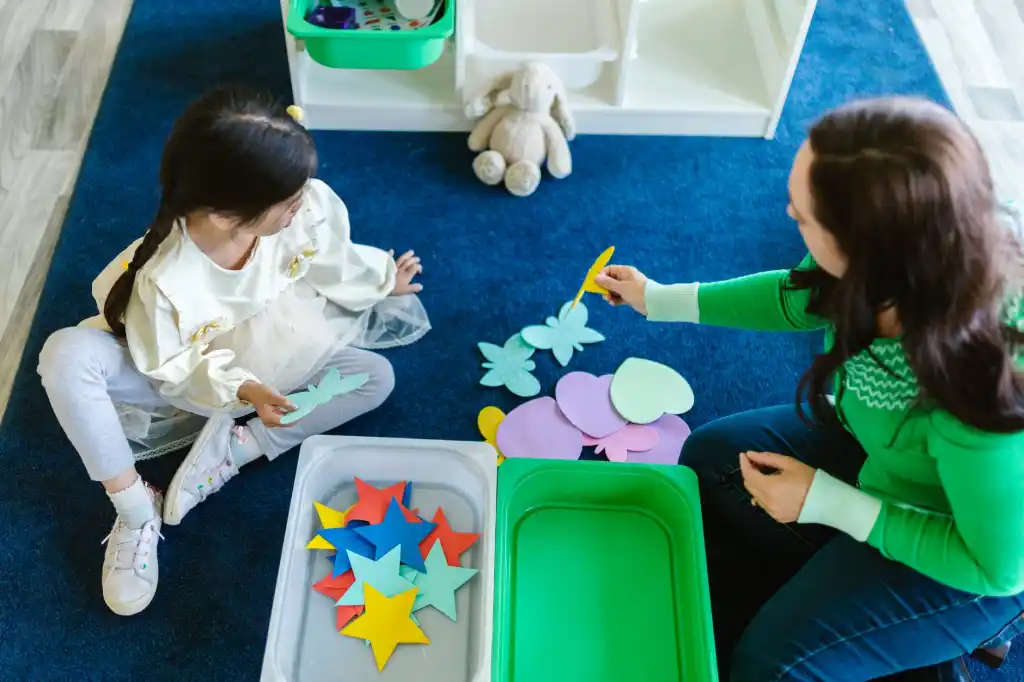Early Signs of Autism: What to Look for and What to Do Next
Every child is unique, and their developmental journey unfolds at its own pace. While some children may hit milestones early, others may take a little longer—and that’s perfectly okay. However, there are certain early signs that may suggest a child could benefit from additional support, particularly in the context of autism spectrum disorder (ASD). Recognizing these signs early can be crucial in ensuring children receive the help they need to thrive.
In this blog, we’ll explore some of the early indicators of autism, what steps to take if you notice them, and how support services like those offered at In2Great can make a meaningful difference for families navigating this journey.
Understanding Autism Spectrum Disorder
Autism spectrum disorder is a developmental condition that affects how individuals communicate, interact socially, and process sensory information. The term “spectrum” reflects the wide range of symptoms and severity that can occur. Some children may have mild challenges, while others may need more intensive support.
ASD typically appears in early childhood, sometimes before the age of three, and can be identified through behavioral patterns and developmental delays. Early identification is key—it can significantly improve outcomes in communication, learning, and social skills.
Early Signs to Watch For
While every child is different, there are some common signs that may indicate a child is on the autism spectrum. These signs can appear as early as infancy or toddlerhood. Here are a few to be mindful of:
- Limited Eye Contact
Eye contact is one of the earliest forms of social interaction. Babies often begin making eye contact within the first few months of life. If a child consistently avoids eye contact or seems uninterested in faces, it may be a sign of difficulty with social engagement.
- Delayed Speech or Communication
Language development varies widely, but significant delays in speech or difficulty using gestures (like pointing or waving) can be a red flag. Some children may not babble by 12 months or may struggle to form words or sentences as they grow older.
- Repetitive Movements
Repetitive behaviors—such as hand flapping, rocking, spinning objects, or lining up toys—are common in children with autism. These movements may serve as a way to self-soothe or cope with sensory overload.
- Limited Interest in Playing with Others
Children typically begin to show interest in playing with peers or engaging in pretend play by age two or three. A child who prefers to play alone, doesn’t engage in back-and-forth games, or seems uninterested in social interaction may be showing signs of ASD.
- Strong Reactions to Sensory Input or Routine Changes
Children with autism often have heightened or diminished responses to sensory stimuli. They may be extremely sensitive to sounds, textures, lights, or smells. Additionally, they may struggle with changes in routine, becoming upset or anxious when things don’t go as expected.
What to Do If You Notice These Signs
If you observe any of these behaviors in your child, the most important step is to trust your instincts and seek guidance. You don’t need to have all the answers—just taking the first step can make a world of difference.
- Talk to Your Pediatrician
Your child’s pediatrician is a great starting point. They can conduct developmental screenings and refer you to specialists if needed. Don’t hesitate to bring up your concerns, even if they seem minor. Early conversations can lead to early support.
- Consider a Developmental Evaluation
A comprehensive evaluation by a developmental specialist or psychologist can provide clarity. These assessments look at communication, motor skills, social interaction, and behavior to determine whether a child meets criteria for autism or another developmental condition.
- Explore Therapeutic Service Options
At any age, your child may be eligible for therapeutic services through your state or local health department. Many programs offer therapies such as speech, occupational, mental health and behavioral support tailored to your child’s needs.
How In2Great Can Help
At In2Great, we understand that navigating developmental concerns can feel overwhelming. That’s why our team is committed to walking with families every step of the way. We offer:
Developmental Evaluations: Our specialists provide thorough assessments to help identify your child’s strengths and areas of need.
Therapy Services: From physical, speech and occupational therapy to behavioral interventions and mental health services, we create personalized plans that support your child’s growth.
Family Support: We believe in empowering families with education, resources, and emotional support. You’re not alone in this journey.
Our goal is to create a nurturing environment where children can flourish, and families feel supported. Whether you’re just beginning to explore concerns or are already seeking services, we’re here to help.
You’re Not Alone
It’s natural to feel uncertain or even anxious when you notice something different in your child’s development. But remember—early support can lead to incredible progress. Many children with autism go on to lead fulfilling, joyful lives with the right tools and guidance.
If you have concerns, don’t wait. Reach out to your pediatrician, connect with specialists, and explore resources like those offered at In2Great. The earlier you act, the more opportunities your child will have to thrive.
Final Thoughts
Autism is a journey, not a destination. Recognizing early signs and seeking support can open doors to growth, learning, and connection. Every child deserves the chance to reach their full potential—and every family deserves compassionate guidance along the way.
If you’re ready to take the next step, contact In2Great today. We’re here to listen, support, and help your child shine.
You don’t have to navigate this journey alone.

